The Pleasures of Paradise (part 1 of 2)
       Description: The first of a two-part article defining the fundamental differences between Paradise and the life of this world. Part 1: The absence of those things which cause grief, pain and suffering in this life. By M. Abdulsalam (© 2006 IslamReligion.com) Published on 16 Jan 2006 - Last modified on 19 Feb 2008 Viewed: 59513 (daily average: 45) - Rating: - Rated by: 103 Printed: 1707 - Emailed: 178 - Commented on: 9 Category: Articles > The Hereafter > Paradise Category: Articles > The Benefits of Islam > The Door to Eternal Paradise |
|
But what is the nature of these delights in Paradise, and how will it be different from the delights of this world? We will try to highlight a few of these differences. Pure delight without pain and sufferingWhile people in this world experience some delight, they also face much toil and suffering. If one was to scrutinize the life which they live, they will find that the amount of hardship they face is much more than the ease and comfort. As for the life of the Hereafter, there will be no hardship nor suffering in it, and people will live therein in pure joy and delight. All the causes of sorrow, pain and suffering which people experience in this life will be absent in the Hereafter. Let’s take a look at some of these causes. WealthWhen one thinks of success in this life, they usually conjure the image of big houses, fine jewelry and clothing, and expensive cars; financial stability is seen to be the key to a happy life. To most people, success is inseparably related to wealth, even though this is the furthest from the truth. How many times have we seen the wealthiest of people living such miserable lives, that it sometimes even leads them to commit suicide! Wealth is something which humans in their very nature desire at any cost, and this desire has been created for a great and wise purpose. When this desire is not satiated, it causes some extent of grief in a person. For this reason, God has promised the inhabitants of Paradise that they will have all that they imagined as far as wealth and belongings are concerned, both for those who were extremely poor, experiencing even hunger and thirst, to those well-to-do but who desired even more. God gives us a glimpse of this when he says: “... there will be there all that the souls could desire, all that the eyes could delight in …” (Quran 43:71) “Eat and drink at ease for that which you have sent forth (good deeds) in days past!” (Quran 69:24) “… They will be adorned therein with bracelets of gold, and they will wear green garments of fine silk and heavy brocade. They will recline therein on raised thrones. How good [is] the recompense! How beautiful a couch [is there] to recline on!” (Quran 18:31) Disease and DeathAnother cause of pain and suffering in this life is the death of a loved one or disease, which are both non-existent in Paradise. None will feel any sickness or pain in Paradise. The Prophet Muhammad, may God praise him, said about the people of Paradise: “They will never fall ill, blow their noses or spit.” (Saheeh Al-Bukhari) None will die in Paradise. All shall live eternally enjoying the pleasures therein. The Prophet Muhammad said that a caller will call out in Paradise when people enter it: “Indeed may you be healthy and never be sick again, may you live and never die again, may you be young and never grow feeble again, may you enjoy, and never feel sorrow and regret again.” (Saheeh Muslim) Social RelationshipsAs for the remorse felt due to a rift in personal relationships, people will never hear any evil or hurting comments or speech in Paradise. They will only hear good words and words of peace. God says: “They will not hear therein ill speech or commission of sin. But only the saying of: Peace! Peace!” (Quran 56:25-26) There will be no enmity between people nor ill-feelings: “And We shall remove from their breasts any (mutual) hatred or sense of injury (which they had, if at all, in the life of this world)…” (Quran 7:43) The Prophet said: “There will be no hatred or resentment among them, their hearts will be as one, and they will glorify God, morning and evening.” (Saheeh Al-Bukhari) People will have the best of companions in the Hereafter, who were also the best people in the world: “And whoever obeys God and the Messenger – those will be with the ones upon whom God has bestowed favor – of the prophets, the steadfast affirmers of truth, the martyrs and the righteous. And excellent are those as companions!” (Quran 4:69) The hearts of the people of Paradise will be pure, their speech will be good, their deeds righteous. There will be no hurtful, upsetting, offensive or provocative talk there, for Paradise is free of all worthless words and deeds. If we were to discuss all the causes for anguish in this life, we would surely find its absence or opposite to be true in Paradise. |
 The reality of Paradise is something which people will never be able to understand until they actually enter it, but God has shown us glimpses of it in the Quran. He has described it as a place essentially different to the life of this world, both in the very nature and purpose of life, as well as the types of delights which people will enjoy therein. The Quran tells people about Paradise, which God offers to them, describes its great blessings, and proclaims its beauties to everyone. It informs people that Paradise is one of two ways of life prepared for them in the afterworld, and that every good thing will be theirs in Paradise to a degree that surpasses our present ability to imagine. It also shows that Paradise is a place where all blessings have been created perfectly and where people will be offered everything their souls and hearts will desire, and that people will be far removed from want and need, anxiety or sadness, sorrow and regret. Every kind of beauty and blessing exists in Paradise and will be revealed with a perfection never seen or known before. God has prepared such blessings there as a gift, and these will be offered only to people with whom He is pleased.
The reality of Paradise is something which people will never be able to understand until they actually enter it, but God has shown us glimpses of it in the Quran. He has described it as a place essentially different to the life of this world, both in the very nature and purpose of life, as well as the types of delights which people will enjoy therein. The Quran tells people about Paradise, which God offers to them, describes its great blessings, and proclaims its beauties to everyone. It informs people that Paradise is one of two ways of life prepared for them in the afterworld, and that every good thing will be theirs in Paradise to a degree that surpasses our present ability to imagine. It also shows that Paradise is a place where all blessings have been created perfectly and where people will be offered everything their souls and hearts will desire, and that people will be far removed from want and need, anxiety or sadness, sorrow and regret. Every kind of beauty and blessing exists in Paradise and will be revealed with a perfection never seen or known before. God has prepared such blessings there as a gift, and these will be offered only to people with whom He is pleased.
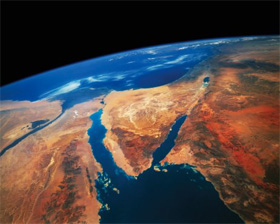 In the early 7th century, the two most powerful empires at the time were the Byzantine
In the early 7th century, the two most powerful empires at the time were the Byzantine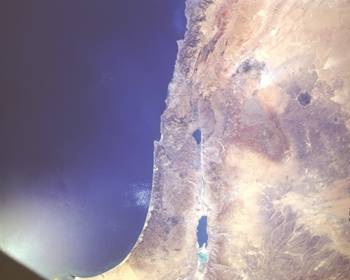

 I noticed almost immediately that the Quranic teachings are very comprehensive, complete, balanced and practical. For the sake of brevity, I will not go into this aspect in any detail but it was something that impressed me quite a bit. The range and flexibility of the laws of the Quran are impressive. It was clear to me that this book was not revealed just for a people at a specific time but was meant for people of very different times and places.
I noticed almost immediately that the Quranic teachings are very comprehensive, complete, balanced and practical. For the sake of brevity, I will not go into this aspect in any detail but it was something that impressed me quite a bit. The range and flexibility of the laws of the Quran are impressive. It was clear to me that this book was not revealed just for a people at a specific time but was meant for people of very different times and places.
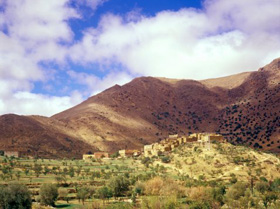 The next aspect that caught me eye—and this again was something that non-Muslims were mentioning in their works—was the effect that the Quran had on the generation of the Prophet. May the mercy and blessings of God be upon him, and afterwards.
The next aspect that caught me eye—and this again was something that non-Muslims were mentioning in their works—was the effect that the Quran had on the generation of the Prophet. May the mercy and blessings of God be upon him, and afterwards. 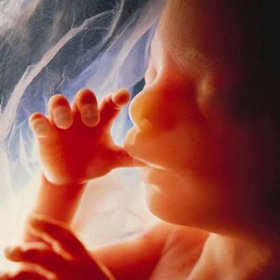 The “scientific miracles” of the Quran is a topic that many people are talking about nowadays, as the research in many fields continues. The source for this is probably the fact that there are literally hundreds of verses of the Quran in which God points to different aspects of this creation and encourages humans to reflect and learn from what they are seeing.
The “scientific miracles” of the Quran is a topic that many people are talking about nowadays, as the research in many fields continues. The source for this is probably the fact that there are literally hundreds of verses of the Quran in which God points to different aspects of this creation and encourages humans to reflect and learn from what they are seeing.
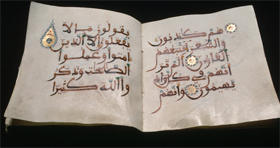 Muslims believe the Quran to be God’s final revelation. They believe it is the literal word of God, revealed over many years, to His final prophet, Muhammad. The Quran is full of wisdom. It is full of the wonder and glory of God, and a testament to His mercy and justice. It is not a history book, a storybook, or a scientific textbook, although it contains all of those genres. The Quran is God's greatest gift to humanity – it is a book like no other. In the second verse of the second chapter of the Quran, God describes the Quran by calling it a book whereof there is no doubt, a guidance to those who are pious, righteous, and fear God. (Quran 2:2)
Muslims believe the Quran to be God’s final revelation. They believe it is the literal word of God, revealed over many years, to His final prophet, Muhammad. The Quran is full of wisdom. It is full of the wonder and glory of God, and a testament to His mercy and justice. It is not a history book, a storybook, or a scientific textbook, although it contains all of those genres. The Quran is God's greatest gift to humanity – it is a book like no other. In the second verse of the second chapter of the Quran, God describes the Quran by calling it a book whereof there is no doubt, a guidance to those who are pious, righteous, and fear God. (Quran 2:2) Prophet Muhammad, the man Muslims believe to be the final messenger from God, received the revelation - the Quran, in two stages. These perfect words of God were sent down to guide humankind out of the darkness and into the light; they are guidance and a mercy. The Quran – the words of God are perfect words, from a perfect God, to His Creation. On the night known as the night of power, in the Islamic month of Ramadan, the Quran descended, from the preserved tablet
Prophet Muhammad, the man Muslims believe to be the final messenger from God, received the revelation - the Quran, in two stages. These perfect words of God were sent down to guide humankind out of the darkness and into the light; they are guidance and a mercy. The Quran – the words of God are perfect words, from a perfect God, to His Creation. On the night known as the night of power, in the Islamic month of Ramadan, the Quran descended, from the preserved tablet Upon entering the fold of Islam purely for the Pleasure of God, all of one’s previous sins are forgiven, and one starts a new life of piety and righteousness. The Prophet said to a person who had placed the condition upon the Prophet in accepting Islam that God would forgive his sins:
Upon entering the fold of Islam purely for the Pleasure of God, all of one’s previous sins are forgiven, and one starts a new life of piety and righteousness. The Prophet said to a person who had placed the condition upon the Prophet in accepting Islam that God would forgive his sins: